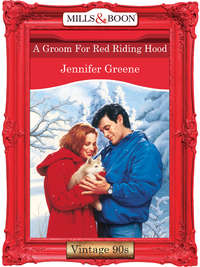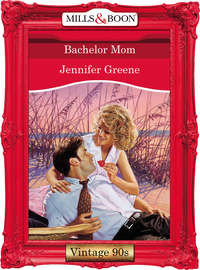
Полная версия
Little Matchmakers
Petie scrabbled from the old van in a flash. Once he’d seen his report card—all As except for a C in gym—he never asked another thing about her meeting with Mrs. Riddle. School, schedules and the Mrs. Riddles in his life were now completely forgotten. All those academic As had earned him the right to download the latest game he wanted.
Garnet climbed from the van more slowly. Her right foot was still smarting, her head doing an annoying little throb—but she didn’t really care. She took a long, lazy moment to cherish the view.
Her five acres had been scrap-scrub when she bought them six years before. No one thought she could make anything of it—especially not her parents, and heaven knew, she had a long, long history of disappointing her family.
Plain Vanilla had been the straw that broke the camel’s back.
It had almost broken hers.
Four customers were parked below the shop—not bad, for midday on a Thursday. Nothing about Plain Vanilla was fancy. The building had shake-shingle siding, with a long overhang for a traditional country-style porch. Unless a serious storm threatened, the double screen doors were kept open and welcoming. Pots of herbs and flowers added color.
The parking lot was known to get a little weedy, but she could already inhale the scents emanating from the shop. Basil and chives. Lavender and vanilla. Scents hung low in this tuck of valley. So, of course, did the heat.
Her bungalow was invisible from here, behind the shop, but to the right stretched open ground—the hodgepodge of raised beds and climate-controlled greenhouses where she grew her own herbs and spices. Two years ago, she—and the bank—had added horizontal blinds that could be opened or closed, to protect the plants from too much sun.
Except for the fancy blinds, she’d made everything herself. There’d never been money for professionals … but she’d had two staff from the start, primarily because she couldn’t work 24-hour days and handle Petie, especially when he’d been little.
And from inside the shop, she suddenly heard two women’s voices … and suspected her son had tattled about her being hurt, because two bodies hightailed down the porch steps faster than she could run for cover.
Mary Lou was somewhere between fifty-five and ninety-five, tougher than beef jerky, and looked it. Her health was precarious, not that she’d admit it. Garnet had “discovered her” five years ago, when Mary Lou had shown up at the back door, fixed her with a scissor-sharp scowl, said her husband was dead, she was bored out of her skull, and she needed to work, no wages needed, just a job.
Garnet had hired her and never looked back. If a thief ever came around, Mary Lou would probably scare him to death, and heaven knew she was a worker.
“Garnet! Peter said you were hurt! Who did what to you, you tell me right now!”
“It was just a couple of bumps, absolutely nothing.”
Mary Lou frowned, but then immediately went off on her own bumps that day. “Well, this morning was a blinger. First off, the postman forgot to leave me stamps and I was going to pay bills. Then Georgia Cunningham, she came in, bought fifty dollars’ worth of all kinds of things, put two twenties on the counter and left. Just like that. I was going to call the police, but then I thought I’d wait until you got home. But I think she should spend the night in jail, myself. Ten dollars! She cheated us of ten dollars! I never …”
Then it was Sally, striding right behind her. “Peter said there was a man who knocked you down—”
“It was a complete accident. No biggie. What’s wrong?”
Sally had dark caramel skin, hair done in dreads and a perpetual frown that did a great job of concealing a gorgeous face. She had two kids and a no-good husband. She worked like a fiend, loved the plants as much as Garnet did and could stand up for herself anywhere she needed to—except at home.
Garnet could tell when her jerk-water husband had done something because Sally’s hands would start jittering; she couldn’t stand still.
“I got a rash on the lavender.”
“Which one?”
“The French blue. They’re just speckles on the leaves, but they weren’t there yesterday. I’ve been trying to look it up. We don’t want it spreading. But you know me and reading those stupid manuals—”
“I know. It’s okay. We’ll go check it out.”
And that was how it went, one crisis after another all afternoon. Early on, she hustled home to talk to Pete—and to make sure he’d had lunch. But of course, being Petie, he’d made himself a sandwich, cleaned up and naturally parked in front of his computer … a water-cooled system that he’d put together himself last Christmas.
She ruffled his mop of brown hair—hair so luxuriously thick she was jealous of it. He was scrunched up in his computer chair, imitating a human pretzel. “Hey. I didn’t get a chance to tell you what Mrs. Riddle had to say.”
“Not now, Mom. I’m at level four.”
“Okay. We can talk about it later, I guess.” She hesitated. “Mr. MacKinnon’s coming over for a little while after dinner.”
“You mean Will’s dad? That Mr. MacKinnon?”
“Yes.”
“Is Will coming over, too?”
“I don’t know. He might.”
Okay. Whatever.”
No “why” or “what for?” He didn’t care. He pushed his glasses higher on his nose, then bent his head to the game again. She couldn’t resist giving him a fast smooch on his forehead. Now that he was ten, she had to steal kisses, kidnap hugs.
“Mom. I’m creating an alternate universe right now. It’s really hard.”
“Okay, okay.” She smiled … but the smile faded in seconds. This was exactly what Mrs. Riddle had implied. Petie was all too happy alone. Everything he loved had always been inside. He’d just never been the kind of kid to play outside, getting into scrapes and mud with playmates.
So, she told herself there was no reason to get nervous about Tucker stopping by. It was a good idea. Single parents had problems that two-parent families just didn’t have. As different as their sons were, it’d be nice to talk to someone else who lived with a ten-year-old. It wasn’t like a personal meeting. Or a date. Or anything remotely like that.
She couldn’t imagine Tucker looking at her that way.
The women in her family were bred to be hothouse Southern belles, Charleston style, women who could do the debutante thing and have dinner for forty—with fresh flowers and crystal—prepared in an hour’s notice. Garnet wasn’t adopted, although when she was eleven, she’d checked to make sure. Something had gone wrong, anyway. Her sisters and mom—even her grandmother—had gracious beauty and poise without even trying.
She’d been born plain vanilla. Always had been, always would be.
The point, though, was that she never got back in the house until nearly six. She’d wanted a shower and clean clothes and a major spiff-up before Tucker got there. Instead, life just kept interfering. Sally needed help with updating Plain Vanilla’s website and Facebook page, which Garnet loved on a par with triple taxes and bee stings. And then Mary Lou cornered her in the backroom, where new herb and spice recipes needed a taste test and review.
By the time Garnet finally charged back home, Petie had made dinner—peanut butter and banana sandwiches, one of his specialties, followed by fresh brownies. Brownies were one of Petie’s favorite creations. This time he’d added raspberries, blueberries and marshmallows. She never knew what he was going to put in next.
“Hey, I’d have made you dinner,” she told him.
“Yeah, well, you were busy and I was starving for peanut butter and banana sandwiches. Mom …”
“What?”
“You know that crazy-looking cat that’s been around for the last week or so?”
“The black-and-orange-and-white one?”
“Yeah. I think she’s pregnant, because I saw her on the window sill about an hour ago, and her stomach was, like, huge.”
“No,” Garnet said.
“I never asked you anything.”
“You were going to.”
Petie shot her a look, one of his most endearing. “I understand why you said no. You have to feel like you’re the one in charge. We’ll talk about it later.”
She chased after him with a dish towel. “Sometimes you sound older than Methuselah.”
“Just because I’m smarter than you?”
“Petie. We can’t adopt every single animal who wanders on our porch!”
“Yes, Mom.”
“I’m still recovering from the ferret you took in.”
“Yes, Mom.”
“And the raccoon babies.”
“Yes, Mom.” He said consolingly, “It’s okay for you to say no. Really. I won’t feel neglected or deprived or anything like that.”
She couldn’t shoot the kid. He was the best thing in her world. She loved him more than life. But he was getting a mouth, and their teasing took another twenty minutes off the clock. She charged into the bathroom, took one look in the mirror and knew she didn’t remotely have enough time. She needed a shower, a hair wash, her foot rebandaged, a haircut, a hair style, a wardrobe refurbishing, shaved legs, time to buy some makeup in town, maybe some jewelry and new sandals.
She also needed to clean her bedroom—not because anyone was going to see it, but because so many things were strewn all over the place that she couldn’t find anything.
A few minutes after seven, Petie yelled from the living room, “Hey, Mom, Mr. MacKinnon is here!”
Well, at least she’d progressed from being naked. The cream linen shirt was ancient, but it was softer than silk and had a band collar. It was her lucky shirt. Her feel-safe shirt. Her hair was still wet, but she’d made a makeshift fat braid, used a tortoiseshell comb to pin it off her head. The capris were clean. And that was the end of her grooming.
She’d have put sandals on, but they were by the back door. She’d put on lipstick, but hadn’t gotten around to the dishes. She’d bandaged her foot, but the coffee table was still heaped with folded clothes that—yet again—refused to put themselves away.
When it came down to it, just showing up was the best she could manage.
Petie was doing a far better job of taking care of their guest. He was sprawled on top of the couch as if he was an afghan, lazily slinging a dirty bare foot in the air. He’d served their guest a sweating glass of grape Kool-Aid and opened a package of Oreos.
“My theory,” Pete was explaining to Tucker, “is that when school’s out, you should get to forget about it. You should get to do stuff you like. Summer should be about not worrying … Hey, Mom. Mr. MacKinnon’s here.”
“I see him. And I heard when you called me the first time. Welcome, Tucker.”
He stood up, not the polite way a boarding-school kid learned to stand when a lady entered the room. It was more of a long, lanky stretching up. He went from a nice, reasonable-sized man sitting in a chair, to a six-three hunk of space that instantly stole all the oxygen in the room.
There was nothing manicured about Tucker. His eyebrows were the same scruffy brown as his hair … and the stubble on his chin. The shirt was clean, no more wrinkled than his cotton pants, and his slow smile looked as lazy as the rest of him. The blue eyes were sexy blue. Laser-riveting blue. Dizzy blue. Or maybe that was just how she reacted to him.
It certainly wasn’t Tucker’s fault he made her knees want to buckle. She should have matured years ago. She kept meaning to. As soon as she had time. For now, unfortunately, he was the only man in a blue moon who had inspired a completely ditzy, unreasonable, irrational crush.
“You’ve got quite a place here,” he said easily.
“It’s a work in progress. Would you like me to show you around?”
“Sure. That sounds good. Pete, you want to come with us?”
“Do I have to?” Pete asked her.
“Nope. Up to you.”
She wished he’d come. She wanted a chaperone. Not to protect her from Tucker. To protect him from her. She was likely to make a damn fool of herself around him.
But showing him around the place gave her something to do, something to say. She started with the shop, because the bombardment of scents and textures usually pleased everybody—men as well as women.
“Wow. How’d you come up with all this?” he asked, almost the minute they walked in the door.
Naturally her pride swelled like a balloon. All this time, she’d never been able to talk to him, and now she couldn’t stop. First, she explained how she’d arranged the shop, and why. Her herbs were all in pots, set in antique porcelain sinks, located so they’d get east light. The old porcelain added to the country-comfortable atmosphere, but also enabled her to set up a water-spraying system so the herbs could easily be misted.
Across the room, the west side held cubbyholes with books on medicinal and culinary uses for herbs and spices, with handwritten recipes that Garnet had started but her customers had added to. Color photographs identified what the herbs looked like in different seasons. The north wall had the least exposure to sunlight, so it was a natural spot to put counters and shelves for bottled or burlap-packed spices and herbs, with fresh samples displayed on small trenchers so a customer could smell and taste.
“Obviously the fresh samples aren’t there now—we clean up at night. But lots of customers don’t know the difference between cilantro and basil. That’s why we have the samples and the books and the recipes … to give them ideas about how to use them.”
“So what’s back here?” Tucker motioned to a wooden half door leading to a space in the back.
She unhooked the gate to the half door and motioned him through so he could see. “We have classes back here … Sometimes we’ll cater a lunch for a small group, or we’ll use recipes to show folks how to use their herbs. This is also where we pot and arrange the plants. And there’s one more room in the far back ….”
She led the way ahead of him. The back room was her favorite, possibly because of its spectacularly wonderful messes. A board-plank table functioned as a work area, but every inch of space was used. Herbs dried from the ceiling and cubbyholes held rolls of ribbon and linen bags and string, while potting soil and tools and pots took up another heap of space. “And this is one of my serious treasures.” She motioned to the climate-controlled aquarium that took up one complete wall. “I created this for a teaching tool. It’s just a miniature woods to show some of the endangered species in our area. Like this plant, Gray’s Lily … and the Glade Splurge here … and this is Mountain Bittercress….”
Her voice trailed off. She completely lost her train of thought. She glanced up and found him watching her. Until that instant she hadn’t realized how close he was, how tall he was, and damn, if he didn’t have the most wicked eyes. Alarm thrummed in her pulse. It was one thing to admit she had a crush, another to fool herself into believing he was looking at her with interest. That kind of interest.
She covered the awkward moment with a sudden quick laugh. “Well, I’ve been talking your ear off, haven’t I? You didn’t come here to hear about all this.”
“Only because I didn’t know what all you were doing here. I knew about the shop. Everybody does. But I didn’t know you did all this interactive stuff with your customers. I mean, all the hands-on learning, side education, the whole shebang.”
Garnet could feel a flush climb her neck, embarrassing the devil out of her. She just rarely heard praise.
“Well, isn’t that similar to what you do?” she asked swiftly. “I know, you don’t have a shop. But you have some kind of private school …?”
“Not a school. A camp and retreat center. I sort of fell into it. Had to do something with my mountain … I mean, there’s some real beauty up top, a small lake, waterfalls, creeks, rocks, woods. It’s too damned special not to share. So I take in groups. Boys in trouble. Companies having trouble with employees getting along. People wanting to start a new venture, make sure the whole new staff can cleave together.”
“And then …?” She ambled back outside with him, exiting from the shop’s back door. A slatted roof covered the breezeway to her bungalow, which provided shade but no mercy from the heat. Tonight, though, the oppressive temperatures had finally eased. A pale haze was stealing across the sky, softening the bright edges of the day.
“Well, what I do after that depends on the group,” Tucker said. “I tend to start them out with some exercise—not work exercise, something fun. That gives me a baseline to work with. I get a picture of what the group can do—what the group might want to achieve together. I don’t teach. I wouldn’t know how to teach. But it’s a little like what you created here. I try to expose people to things they haven’t seen and done before. Hope to challenge them, to engage their natural interests. When something works, I build on that. Garnet …?”
She’d been listening, but when he said her name in a question, she lifted her head.
“I’d like to see everything you’ve got going outside, but maybe another time? I can see you’re favoring that right foot. How about if we find a place to park for a few minutes?”
She wasn’t going to deny her sore foot again. “You have no idea how well the limp’s been working for me. I’ve been playing it up all day, making everyone else do the work, while I do the lazy Queen of Sheba routine.”
He grinned. “Somehow I believe that, like I believe in the tooth fairy.”
He had an odd way of making her feel comfortable … when she’d never imagined being comfortable around Tucker. He gravitated toward her front porch, where he probably spotted the old Adirondack rockers nested in the shade. It was a favorite spot for her. She couldn’t see the road or the shop; she just had her private view of the mountain … and the acres she’d cultivated with greenhouses and raised gardens.
Tucker took it all in, as if the view were sipping whiskey. “Wow. You’ve got a lot to do here. Major work.”
“It’s taken a long time to get it this far. But I love it,” she admitted.
“Is that a padlock I see on the far greenhouse?”
“Yes … it’s pretty much the only thing I keep locked around here.”
“For a special reason?”
“Oh, yeah. My vanilla plants are in there. It’s the specialty of the whole place … not that I’m doing anything so brilliant. But it’s a strain of vanilla I developed, so I need to guard it.”
He’d cocked up a leg, started a slow, lazy rock. “Speaking of stuff that smells beyond irresistible—like vanilla—what’s the thing I’m smelling around the porch?”
She motioned to the pots around the doors and steps. “Mint. It takes over if you just let it grow, but in pots it’s easy enough to contain. They’re not such pretty plants, but according to folklore, flying bugs and insects just don’t like the smell, so they stay away.”
For a second—just a small, small second—a silence fell. Because she’d never had the brains God gave a goose, she suddenly thought of a local folklore legend. Old-timers claimed that Whisper Mountain got its name from a “whispering wind” that only lovers heard.
In that small, small second of silence … she heard it. The whisper. The silken-soft whisper in the air. The achy sweet hum of yearning.
How stupid could she be? Annoyed with herself, she stabbed the porch floor with a heel and set her rocker at a creaky pace.
Tucker broke that dangerous silence. “How bad’s the head?”
The bump on her head wasn’t a problem. The brain inside her head was the problem, particularly if it was going to continue to respond to him like mush. “Our sons,” she said, and thankfully the words functioned like a trigger to remind him why he’d stopped over.
“Yeah, I figured we’d better get into that.” Tucker sighed, scratched an ear, made a comical face. “Mrs. Riddle scares the devil out of me, has from the first day of school. She makes me feel like I’ll end up standing in the hall for some unknown wrongdoing. Anyway, she had a problem with my Will. Said for the last few months, he’s become painfully shy around girls. Really miserable. Sweating, stumbling, can’t talk.”
She had to smile. “Don’t you think all kids go through that?”
“Yeah, I do. But Will hit a massive growth spurt this year, shot up four inches, and I expect the mountain of hormones hit him before I was ready.”
Out of nowhere, a cat showed up at the corner of the porch. Garnet instantly recognized it as the feline Pete had mentioned, because it was a she. A very, very pregnant she. There was some invisible sign on her property that invited only the critters who were pregnant and hungry. The cat was the color of mud, with a little Georgia red dirt thrown in, and eyes as gold as topaz. She started washing a paw, as if it was her porch and she’d always washed a paw there.
“Your cat?” Tucker asked.
“Absolutely not,” she said firmly.
As if the cat sensed she was the subject of discussion, she twitched her tail and ambled over to Tucker’s side. She hesitated for all of a millisecond, and then leaped on his lap.
“You’re sure it’s not yours?”
“Trust me. That cat will never be mine.”
“Hmm. She doesn’t seem wild.”
He probably got that impression because the ornery, hardscrabble cat sleepily closed her eyes and started purring loud enough to wake the dead. Tucker shot her an amused look. He also gave the cat a long, soft stroke under her chin.
“Do not laugh at me. I’m learning to say no to Pete. It just doesn’t happen to be a skill I’m particularly good at. But we simply have to stop adopting strays.”
“Uh-huh. So how long do you think before she makes it into the house?”
All right. He made her laugh. “A week. At least I hope I can hold out that long.” And then, because she was starting to feel comfortable with him in spite of herself, she asked carefully, “I don’t know your circumstances, Tucker. I mean, I know you’re a single parent like I am. But as far as Will’s being extra nervous around girls … is there no mom in his picture?”
“There is. But she isn’t what you’d call a helpful female influence on Will.” Tucker sighed. “Angie’s her name. We married before we finished college. My parents, her parents, everyone thought we were the perfect pair. For damn sure, she was the prettiest girl to ever graduate from Ole Miss, and back when I was twenty-one, I thought that was all that mattered. We’ve been divorced for around five years now. She got physical custody from the beginning, but Will never actually lived with her.”
She frowned. “How’d that happen?”
“I know. It doesn’t make a lot of sense. Angie decorates rich folks’ houses in Atlanta. She’s great at it. She claims she’s putting all the child support money I send into a college fund for Will. I don’t know if that’s true or not. I just know that Will’s happy with me, and there’s no trouble as long as I keep sending the full quota of child support.”
The picture Garnet formed of his ex-wife wasn’t pretty … not that it was any of her business. “Will knows this? That she actually has physical custody even though he really stays with you?”
“Not exactly. I don’t like lying to a kid, any kid … but I can’t see telling Will something that would only hurt him, and for no possible purpose. She schedules four weekends or so a year to see him. And some holidays. She loves him. But … well, I think she was in a hustle to get married and have kids, but once the ring went on her finger and we had a kid, she was like a snail without a shell. The new role didn’t fit. She never grew out of wanting to be a full-time Southern belle.”
Garnet mulled how much he’d revealed of his life, and how easily. But he was already talking again.
“I didn’t want to bore you to death with all that background. But I figured you might need to know … if you’re inclined to go along with my plan.”
“A plan?” she echoed.
The mottled cat leaped to the ground, washed another paw and then, as if she’d been asked, leaped up on Garnet’s lap. Garnet firmly ignored her.
“I didn’t hear all of what Mrs. Riddle had to say about your Pete. But I heard some. And I got this idea … that we could try trading kids, a few afternoons a week.”











